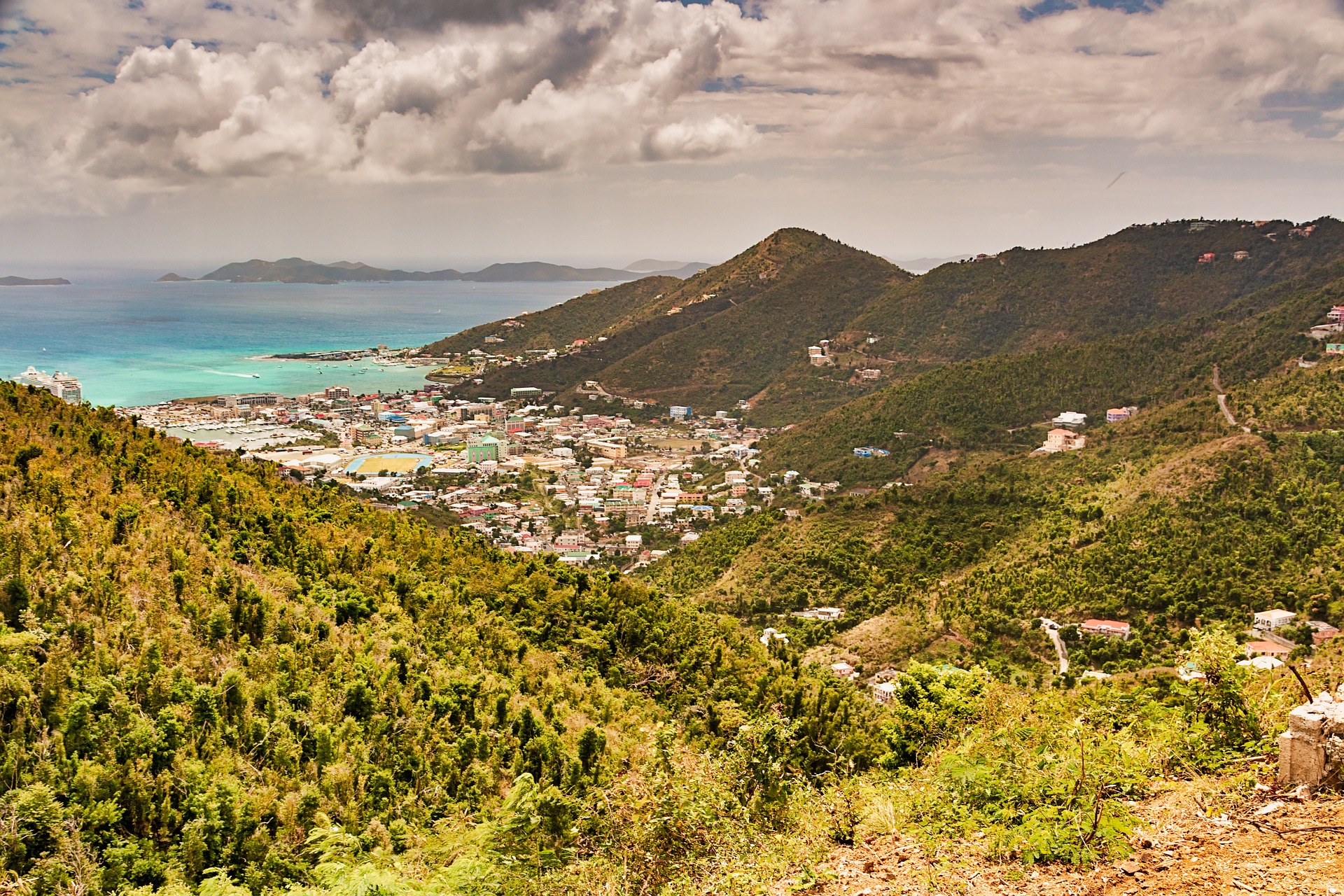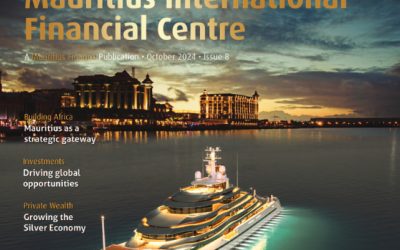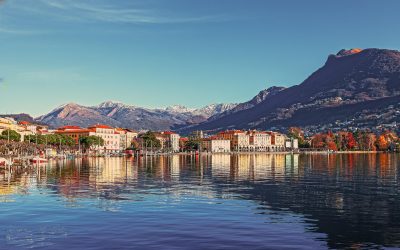____________________________________________________________________________________________________________
The Territory of the Virgin Islands, commonly referred to as the British Virgin Islands (BVI) is located in the Caribbean, to the east of Puerto Rico. The Atlantic Ocean lies to the north and the Caribbean Sea to the islands’ south. A British Overseas Territory, the main populated islands are Tortola, Virgin Gorda, Anegada and Jost Van Dyke. The territory comprises some fifty other islands and cays including Necker, home to Sir Richard Branson. The total population is around 31,700 based on latest UN estimates, of whom the majority live on Tortola.
Road Town, BVI’s capital, is the centre of the territory’s administrative and commercial activities. Government offices and a plethora of local and international businesses complement its vibrant harbour.
A parliamentary democracy within a constitutional monarchy, the BVI’s head of state is HM King Charles III. Ultimately subject to the UK’s authority, the territory enjoys a significant level of autonomy and is largely self-governing. The monarch appoints a Governor and BVI maintains its own local government comprising a Chief Minister and a unicameral House of Assembly elected by local residents.
Improbably picturesque locations across BVI attract visitors from all over the world and it is a popular high-end tourist destination. The principal gateway is Terrance B. Lettsome International Airport, the crucial route being to Miami, Florida allowing worldwide connections. Furthermore, the islands are easily accessible by sea. Ferries and private vessels provide speedy transport, catering to the needs of both residents and visitors alike.
Most tourists arrive by cruise ship and numbered 720,000 last year, which also saw a significant growth in overnight visitors to more than 260,000. According to the BVI Airports Authority, the islands’ three airports collectively handle more than 300,000 passengers annually.
BVI is one of the world’s premier international finance centres. In a convenient time zone one hour ahead of New York, the US dollar is its official currency. Emerging from humble beginnings in the early 1970s, the jurisdiction has diligently developed its finance sector, leveraging business-friendly regulation and thoughtfully designed tax incentives. Accelerating rapidly from the mid-1980s, the government was keen to adopt proactive legislation aimed at streamlining company incorporation at an attractive cost. This effort culminated in the consolidation of various laws into the BVI Business Companies Act, 2004.
Fast forward to today and company fees constitute approximately half of total government revenues. BVI promotes a diverse range of regulated financial services making it a preferred destination for numerous international businesses, investment funds and other enterprises. Many of these create complex multi-jurisdictional structures attracted by BVI’s stable legal system based on English law, together with a hard won reputation for financial confidentiality and integrity.
Regulatory oversight in BVI is stringent. Fiduciary and trustee businesses offer an extensive range of services including trusts, company registration and management, limited partnerships, and intellectual property protection. Investment funds, insurance, banking and legal services have shaped BVI into one of the most highly integrated financial centres in the world.
Corporate entities, institutions and private clients favour BVI companies for a multitude of business and personal purposes. These include holding companies, facilitating joint ventures, listing activities, managing real estate, succession planning and yacht / aircraft registration. Moreover, multinational conglomerates commonly use BVI companies to support their activities.
Clients and their advisers using BVI are not restricted to using companies limited by shares – although those remain the most commonly encountered and many hundreds of thousands of such entities have been incorporated. Alternative structures include companies limited by guarantee, segregated portfolio and restricted purpose (SPV) companies as well as unlimited entities.
Trusts in all their forms are a crucial part of BVI’s finance centre. In addition to conventional trusts, the jurisdiction offers specialised vehicles such as Private Trust Companies (PTCs) and the VISTA trust regime that is exclusively available in BVI. TrustQore will delve deeper into a number of these topics in forthcoming articles.
Investment funds have played a crucial role in driving the jurisdiction’s growth and stability. BVI accommodates several types of fund including Segregated Portfolio Companies (SPC), Limited Partnerships and Unit Trusts. Depending on specific requirements, the jurisdiction allows registration as Open Ended or recognition as Closed Ended entities.
In recent years, the finance centre has undergone significant change aligning with global efforts to combat money laundering, tax evasion and terrorist financing. Legislation addressing economic substance and anti-money laundering measures has been introduced, underscoring the jurisdiction’s commitment to upholding international regulatory standards.
BVI offers an irresistible blend of natural beauty, Caribbean vibrancy and a resilient, prosperous economy. This has led to the creation of a highly sought after destination and enviable international finance centre attracting tourists, investors and finance professionals alike.
This overview merely scratches the surface of BVI’s opportunities. Future articles will detail how international businesses and individuals can leverage these advantages. In the meantime, for further information or to explore ways in which TrustQore can assist you, please get in touch with Nico directly [email protected]
With Africa’s growth presenting huge investment opportunities for foreign investors, Nico van Zyl of TrustQore Group dives deep into the pivotal role that Mauritius can play by acting as a stable platform that mitigates the risks inherent in forays into the emerging continent.
In recent decades, a significant portion of Africa’s business has been driven by foreign investment. Mauritius is well placed to play a crucial role in the continent’s future development.
Africa is home to some of the world’s fastest growing economies. According to a recent analysis by Statista, every country on the continent, except Sudan, should experience positive GDP growth this year. Furthermore, more than half of these economies are projected to see growth rates exceeding 5%.
Foreign investment in Africa
To elaborate, the continent’s expanding middle class, rapid urban development and abundant natural resources are key drivers of this growth. Taken together, they present huge investment opportunities for foreign investors.
Beyond exploiting the continent’s vast natural resources, investment opportunities in Africa include the development of crucial sectors such as infras-tructure, manufacturing, agriculture and technology.
A key element of sustainable business success is the assurance of a stable platform for inward investment and the ability to realise profits when the time comes to exit. This is where Mauritius plays a pivotal role.
Inward investment into Africa – opportunity and risks
International investors and advisers should consider several factors when considering entry into the African market. This process should be coupled with an honest assessment of the challenges and business risks that may arise. Establishing a structure in Mauritius can aid in managing, and, where possible, mitigating these risks.
Positive factors include the increasing number of economic reforms seen in many African states in recent years leading to greater political stability. Improving regulatory frameworks and investment incentives – including special economic zones – are increasingly attractive.
Mauritius is also an early adopter of African trade agreements, including the Africa Free Trade Zone and, more recently, the African Continental Free Trade Area (AfCFTA) which, with over fifty states, forms the world’s largest free trade area (by number of countries) after the World Trade Organization.
Perhaps more than any other continent, Africa presents tangible risks to investors. Despite significant political advances and enhanced infrastructure in many regions, these improvements are not universal. Additionally, corruption and legal hurdles can still pose significant deterrents for international investors.







